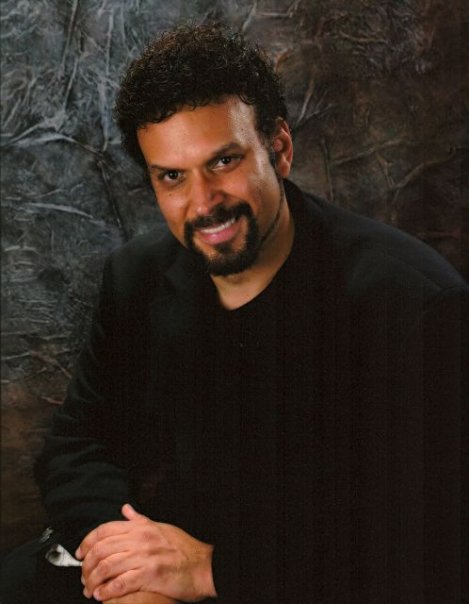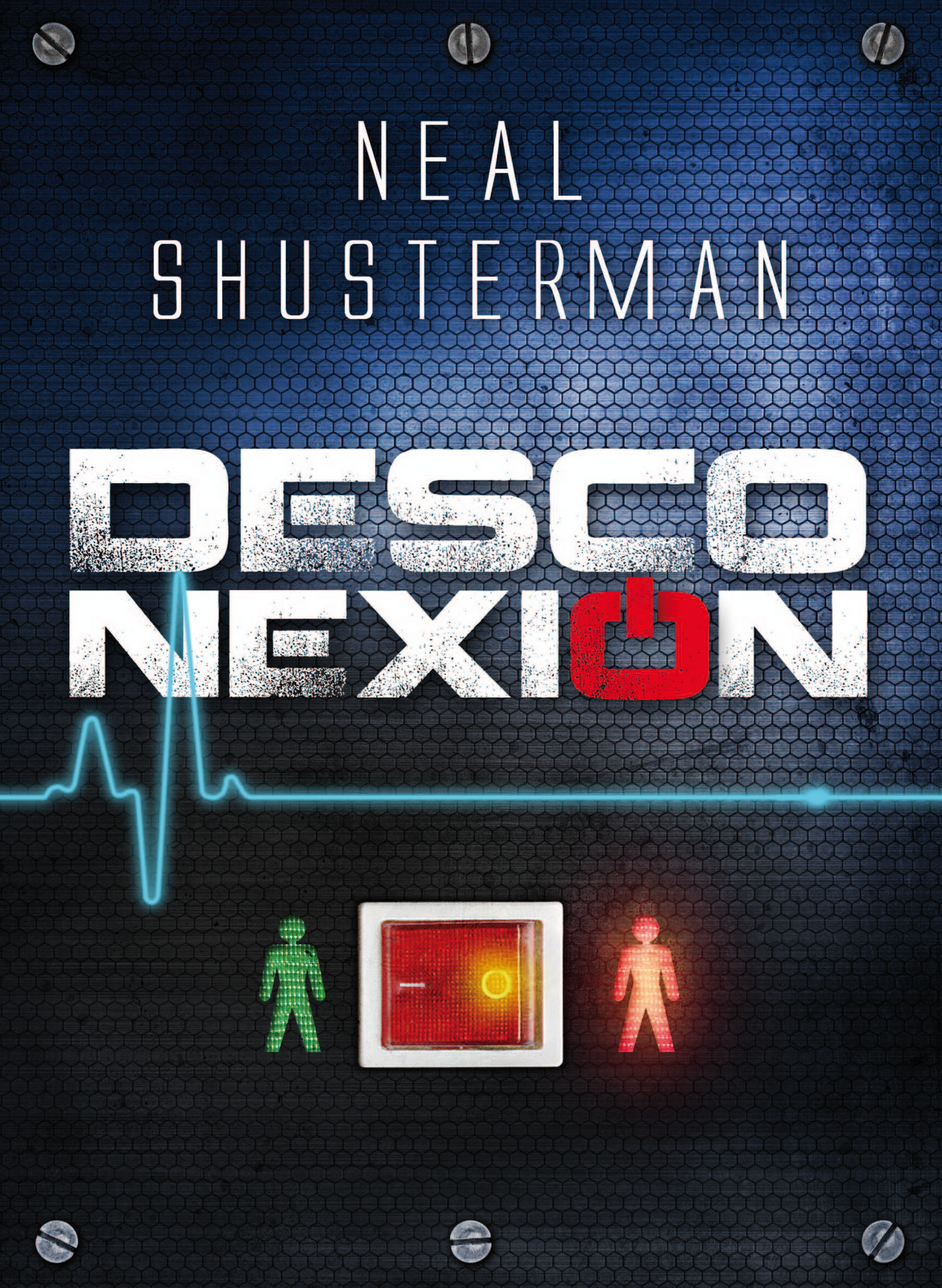¿Que te apetece leer?


As a writer, you adress very controversial issues like children's death or abortion. Why that choice of topics? Has censorship never worried you?
I do address difficult subjects, but I do it responsibly. I like to ask hard questions, and really challenge readers to think. People appreciate that. Not just kids, but teachers and parents, too. The only censorship issues I ever have for my books are from people who haven’t actually read them.
In the Skinjacker Trilogy you write about a world where children's souls go when they die: Everlost. How did the idea of that place come to you?
It’s not that their souls go there – it’s that sometimes they get stuck there on the way to where they’re supposed to be going. A place that’s in between life and death. Teenager’s lives are all about being “in-between.” Not quite children, and not quite adults. Everlost is a metaphor for that. It’s a place they have to navigate for themselves. A place where they can’t rely on adults to tell them what to do. My goal was to take that metaphor of the “world in-between” and create a entirely new, and fresh reality that we haven’t seen before, with it’s own rules, it’s own wonders, and it’s own terrors.
In Unwind you show us a terrifying future where young people can be retroactively aborted any time before t heir eighteenth birthday. How was the developing process of the story in this book? What came first: the concept of "unwind" or the idea of young people fighting the system?
heir eighteenth birthday. How was the developing process of the story in this book? What came first: the concept of "unwind" or the idea of young people fighting the system?
Young people are always fighting the system in one way or another – that’s nothing new, but what got me interested in the idea was an article I had read about a woman in France who had the world’s first face transplant. The article talked about how medical technology is advancing, and that in a few years, 100% of a person could be used in transplant. That made me wonder, if 100% of you is alive, just transplanted, are YOU still alive? It suddenly makes the question of life and death a “gray area,” like the question of when does life begin. No one can say with certainty when a human life begins – what if we couldn’t be certain when a life ended either? And how might people use that to manipulate society’s ethics? Because if everyone were convinced that someone could be alive but in “a divided state,” what awful things might we allow to happen? Unwind is a story about what can happen when a society allows it’s ethics to be manipulated. The story intentionally does not take any political sides on the controversial issues it addresses. I wanted people on all sides of the issues to be able to appreciate the story.
One of the most solid assets at the Unwind series are the well-defined characters with very strong personalities. Did you spend a lot of time creating them? How difficult is it to get under the skin of so different characters such as Lev and Connor in the same story?
Characters grow in the process of writing, and revision. It’s very important to me that the characters feel real. To me they ARE real. Real kids in unreal circumstances. No matter what the subject matter, or plot of a story, the characters are the most important part. The plot comes secondary to them. Sometimes my characters make choices that go against what I wanted them to do. I have to let them make their own choices, even if it changes the story.
Clearly you can handle stories about war with mystery and drama. However, in your novels you don't forget about love. Do you do it to balance the plot or because the story itself calls for it?
Relationships are a part of real life. People in intense situations will form intense connections, whether it be a powerful friendship, like between Connor and Lev, or a romantic relationship, like between Risa and Connor. With regards to the romantic element, it would have felt wrong to leave it out, because it would have felt false.
Here in Spain your Skinjacker Trilogy and the first two books of the Unwind saga has been published, but your publishing house, Anaya, has revealed us that they will also translate your new series co-written with Eric Elfman: Tesla's Atic, which will also be a trilogy. What can you tell us about these books?
 I have always been intrigued by the inventor Nikola Tesla, who is responsible – even more than Edison – for the electrical world we live in. He was years ahead of his time. In Tesla’s Attic, a boy moves into a house with a attic filled with weird junk. So he sells everything that’s there, and then discovers that these were all the last inventions of Tesla, and if they get into the wrong hands, they can destroy the world. It’s up to him to get them back. Tesla’s Attic much lighter, much funnier than the Unwind books, and more like my novel El Schwa Estuvo Aquí. The second book in the trilogy is Edison’s Alley which will be coming out next year.
I have always been intrigued by the inventor Nikola Tesla, who is responsible – even more than Edison – for the electrical world we live in. He was years ahead of his time. In Tesla’s Attic, a boy moves into a house with a attic filled with weird junk. So he sells everything that’s there, and then discovers that these were all the last inventions of Tesla, and if they get into the wrong hands, they can destroy the world. It’s up to him to get them back. Tesla’s Attic much lighter, much funnier than the Unwind books, and more like my novel El Schwa Estuvo Aquí. The second book in the trilogy is Edison’s Alley which will be coming out next year.
You've written more than twenty books, but this is the first time you embark yourself on a project with another author. How are you experiencing the four-handed writing process?
It’s great! Eric and I have worked together on film and TV projects, and so we’ve established a collaborative style that really works. He lives in Northern California, and I live in Southern California, which is about the distance between Madrid and Paris – so we can’t always get together. Instead we’ve been working online using Google Drive, which allows us to be in the same document online at the same time. It’s like being in the same room. I don’t think of it as four hands anymore, it’s more like two brains in “the cloud.”
You've worked as screen and TV writer for several shows such as Goosebumps and Animorphs. What are the differences between writing a screenplay or a novel? Which result motivates you more: see a book published or an episode aired?
Screenplays, or teleplays are just blue-prints for movies or TV shows. The final product rarely looks the way the writer envisioned. It’s very rewarding if a project gets made, but only a small fraction do. On the other hand a book is a finished product and it reaches the audience the way the author intended. Also, books rely on the imagination of the reader. A book comes at its audience from the inside, rather than from the outside. I find writing books much more rewarding. But I’d love to see those books as movies!
And speaking about scripts... How are the movie projects for Unwind and Everlost going? Any news?
No news on Everlost, but Unwind is moving closer to production. It’s a very slow process, but hopefully it will be a movie soon. The studio is currently trying to attach a great director.
You've given many presentations and lectures in schools and high schools. How was the experience? What topics are your favorites to address when you talk to young people and what do they usually ask you?
 My presentations are all question-and-answer. I want to have a conversation with readers, and talk about the things they want to talk about, rather than lecturing to them. I always get asked where I get my ideas from, how I started writing, and about the writing process -- but I’m always surprised by questions I wasn’t expecting. For instance, just last week I was speaking in New York, an a student asked “If all of your characters were trapped in a burning building, and you could save only one, who would you save?” I had to think really hard about the answer. In the end, I said Lev, from Unwind – because of all of my characters, he’s the one who suffered the most, and deserves to have a life. But then another student pointed out that Lev would run back in and save the others instead. Actually I think a lot of my characters would. I don’t think I’d be able to get any of them out of that burning building, because they’d all be trying to save each other. I also think that one of them would be clever enough to figure out a way to save everybody!
My presentations are all question-and-answer. I want to have a conversation with readers, and talk about the things they want to talk about, rather than lecturing to them. I always get asked where I get my ideas from, how I started writing, and about the writing process -- but I’m always surprised by questions I wasn’t expecting. For instance, just last week I was speaking in New York, an a student asked “If all of your characters were trapped in a burning building, and you could save only one, who would you save?” I had to think really hard about the answer. In the end, I said Lev, from Unwind – because of all of my characters, he’s the one who suffered the most, and deserves to have a life. But then another student pointed out that Lev would run back in and save the others instead. Actually I think a lot of my characters would. I don’t think I’d be able to get any of them out of that burning building, because they’d all be trying to save each other. I also think that one of them would be clever enough to figure out a way to save everybody!
Throughout your career you have won multiple awards, many of them provided by your own readers (one of the latest from our own magazine). What does it mean to you to win a prize? How does it feel to see your work recognized?
It’s always an honor to win an award. The prizes and awards that mean the most to me are the ones that are voted on by the readers themselves. Every writer wants to know that their work is appreciated. Writing can be very solitary; you put down your ideas, send them out into the world, and sometimes you don’t know if they’re making a difference out there. I’m happy to know that my books are making a difference in people’s lives.
And finally... Have you ever thought about coming to visit your Spanish fans?
I would love to visit Spain, and I hope to come in 2015!











